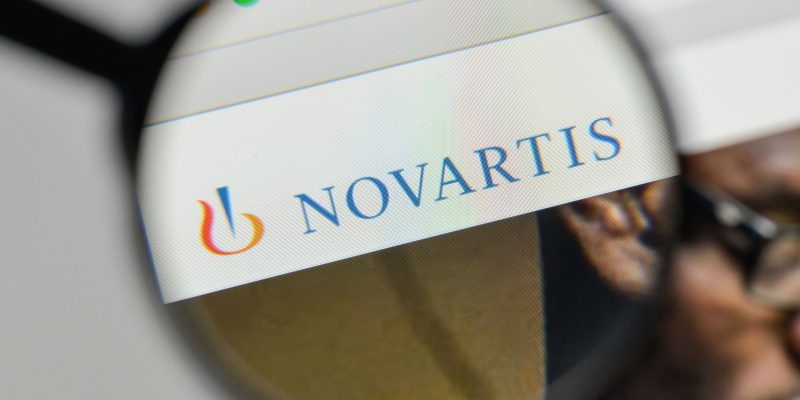
As weight-loss treatments dominate the pharmaceutical market, Swiss drugmaker Novartis AG (SWX: NOVN) is choosing a different path.
While competitors like Eli Lilly and Novo Nordisk race to capture the booming weight-loss drug market, Novartis is steering clear of the frenzy.
Instead, the company is doubling down on other therapeutic areas, including Alzheimer’s, Parkinson’s, Huntington’s disease, and, most notably, radioligand therapies (RLTs) for cancer.
In a recent interview with CNBC, Novartis CEO Vas Narasimhan emphasized the company’s strategy to focus on areas where it can lead, rather than compete in the crowded weight-loss space.
Narasimhan highlighted the immense potential of radioligand therapies, predicting it could become a “$20 billion-plus business” for the pharmaceutical giant.
Novartis has already made significant investments, launching two cancer treatments and acquiring companies to bolster its RLT portfolio.
Novartis’ approach to the weight-loss market
While Novartis isn’t diving headfirst into weight-loss treatments, the company isn’t ignoring the sector entirely.
The weight-loss market is expected to balloon to a $200 billion valuation within the next decade.
Rather than directly competing with industry heavyweights Eli Lilly and Novo Nordisk, which are deeply entrenched in GLP-1 receptor agonists, Novartis is taking a more targeted approach.
“We’re focusing on developing treatments that reduce nausea and vomiting or allow patients to lose weight while retaining muscle mass,” Narasimhan said during an appearance on Squawk Box Europe.
He confirmed that Novartis is actively researching both areas to carve out a unique position in the weight-loss market.
Despite its strategic divergence from weight-loss leaders, Novartis shares have risen more than 15% from their year-to-date low, although they have not outperformed Novo Nordisk, the current European leader in the weight-loss space.
Is Novartis stock a buy in September?
Novartis stock has enjoyed a solid performance in recent months, but analysts at Bank of America Securities have expressed concerns about the company’s growth prospects.
They argue that without a significant new catalyst, the stock may struggle to rise further.
Novartis’ decision to avoid deep involvement in the fast-growing weight-loss market has only added to their skepticism.
BofA analysts also cited growing generic competition for Entresto, Novartis’ popular heart failure drug, as a reason for downgrading the stock to “neutral.”
Additionally, a patent dispute with MSN Labs over Kisqali, a breast cancer drug that recently received FDA approval for earlier-stage patients, has raised long-term growth uncertainties.
Despite these challenges, Novartis delivered strong second-quarter results, reporting $12.9 billion in revenue—a 10% year-on-year increase—and earnings of $1.60 per share, up from $1.09 last year.
Both metrics surpassed Wall Street estimates. Moreover, Novartis offers a 3.37% dividend yield, positioning it as an attractive option for investors seeking steady total returns.
As Novartis continues to refine its focus and navigate market challenges, its long-term growth strategy in specialized treatments like RLTs may offer investors promising returns beyond the current weight-loss hype.
The post How Novartis plans to thrive without competing directly with Eli Lilly in weight loss drug market appeared first on Invezz









